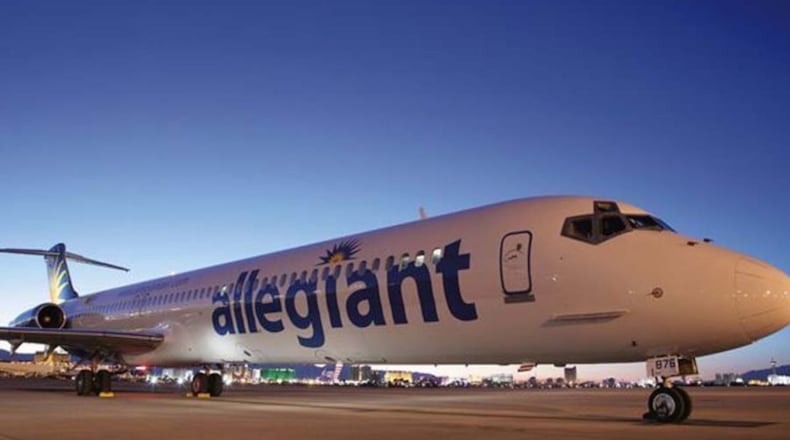The government cited Allegiant Flight 1127 from James M. Cox Dayton International Airport on July 19, 2017, as one of the flights for which the airline failed to provide comfortable temperatures during a delay.
On that day, the airport recorded a high temperature of 88 degrees, according to the National Weather Service. The government’s order does not reveal how high airplane temperatures became, nor how cool the plane should have been kept.
Allegiant told the government “it takes compliance with laws and regulations very seriously,” but added, “outdoor temperatures made cabin cooling during the tarmac delays difficult at best despite Allegiant’s use of air conditioning carts, ground power units, and other measures to supplement internally-generated cooling” on the flights.
INVESTIGATION: The nation’s largest airline pilots union fought drug testing for decades — and still does
The carrier said it made “sensible decisions taking account of the information available and various pro-passenger considerations, including the passengers’ consistently strong desire to get to their destination as quickly as possible.”
Seven of the incidents occurred at Las Vegas McCarran International Airport. Another occurred at El Paso International Airport in Texas. Many of the flights, Allegiant said, “were subjected to outdoor temperatures generally in the triple-digit range and in some cases exceeding 110 degrees Fahrenheit.”
The government considers an airline’s failure to comply with regulations as an “unfair and deceptive practice” under the law.
A tarmac delay occurs when an airplane on the ground is either awaiting takeoff or has just landed and passengers do not have the opportunity to get off the plane, according to the transportation department.
For flights departing from a U.S. airport, airlines are required to begin to move the airplane to a location where passengers can safely get off within 3 hours for domestic flights and 4 hours for international flights, according to the department.
ELECTION 2018: Turner criticizes Gasper comment about Wright-Patterson Air Force Base
During a tarmac delay, airlines must provide passengers with a snack, such as a granola bar, and drinking water no later than two hours after the aircraft leaves the gate, according to the department.
In one of the cases, an August 2017 flight from Albuquerque, New Mexico, Allegiant “failed to make announcements to inform passengers that they had an opportunity to deplane,” according to the department’s consent order. Nor did the airline “have adequate supplies onboard to provide water and snack service to all passengers.”
The incident in Dayton is not the first for the airline.
An engine on an Allegiant plane destined for Dayton caught fire in March 2017. The flight was one of 11 to suffer similar mechanical issues with the plane’s generator, according to a report from the National Transportation Safety Board.
No injuries were reported for any of the 157 passengers or six crew members.
Storm Center 7 meteorologist Jesse Maag contributed reporting.
Read more coverage:
» 15 years after settlement, Cincinnati archdiocese still receiving new abuse allegations
» 7 accused Marianist brothers spent time at UD, Chaminade
» Local prosecutors investigate Dayton tie to Pennsylvania priest case
» Investigation: Ransomware costs Riverside thousands, hinders access to police systems
About the Author
